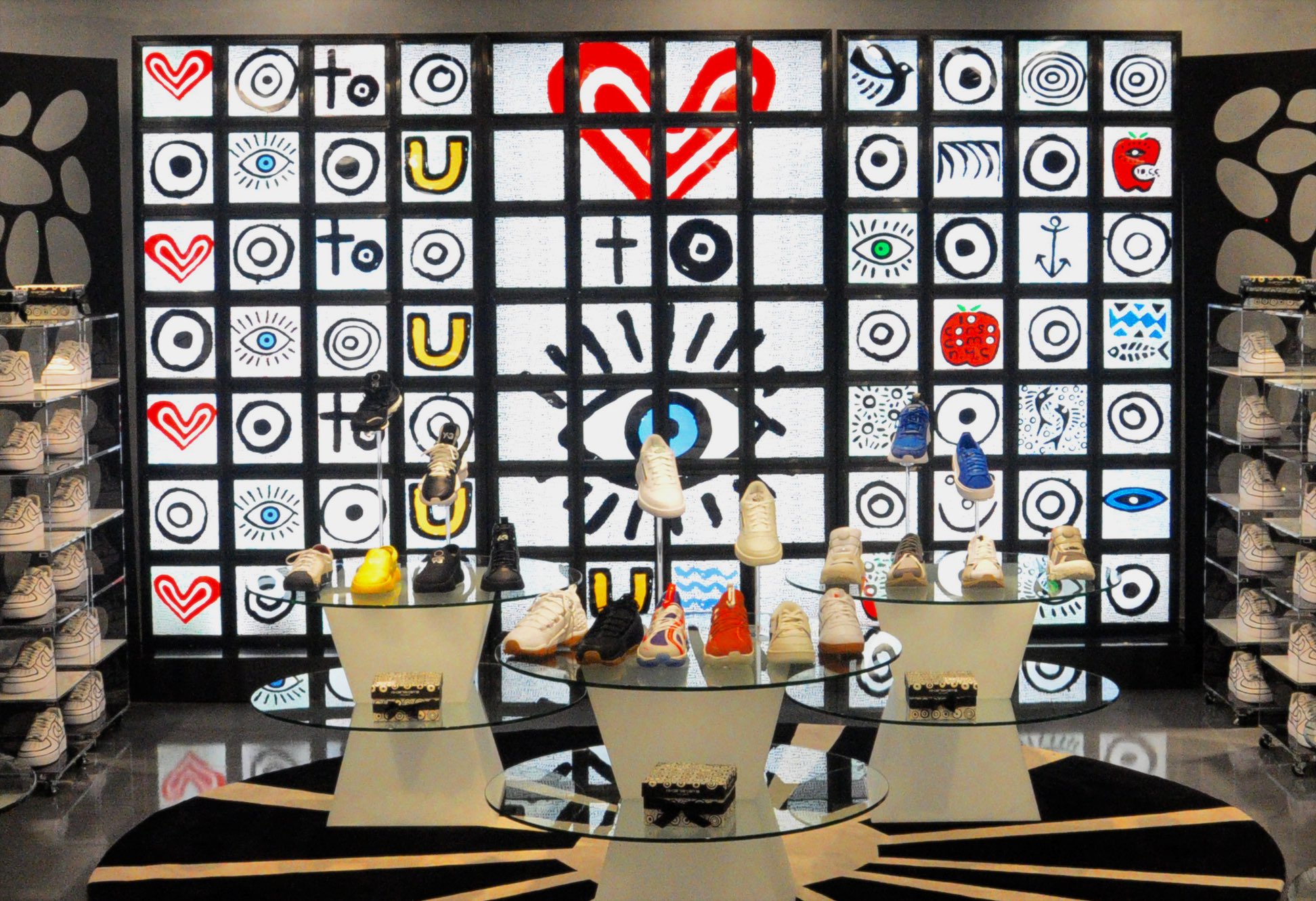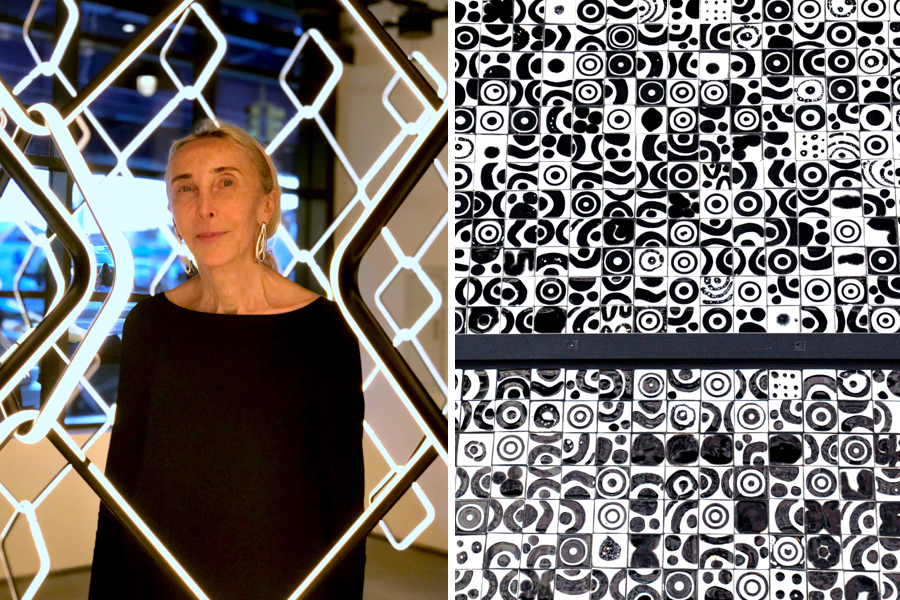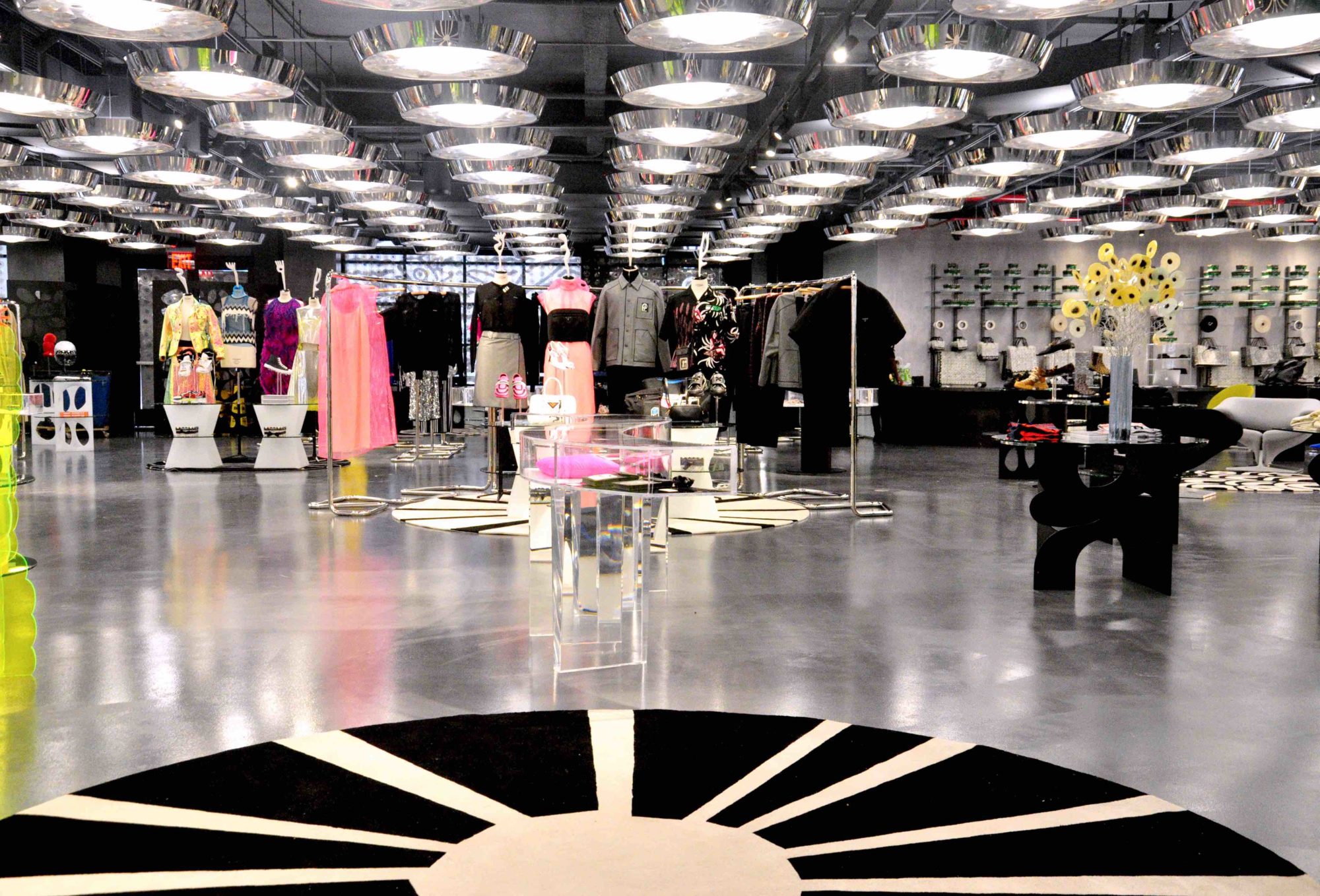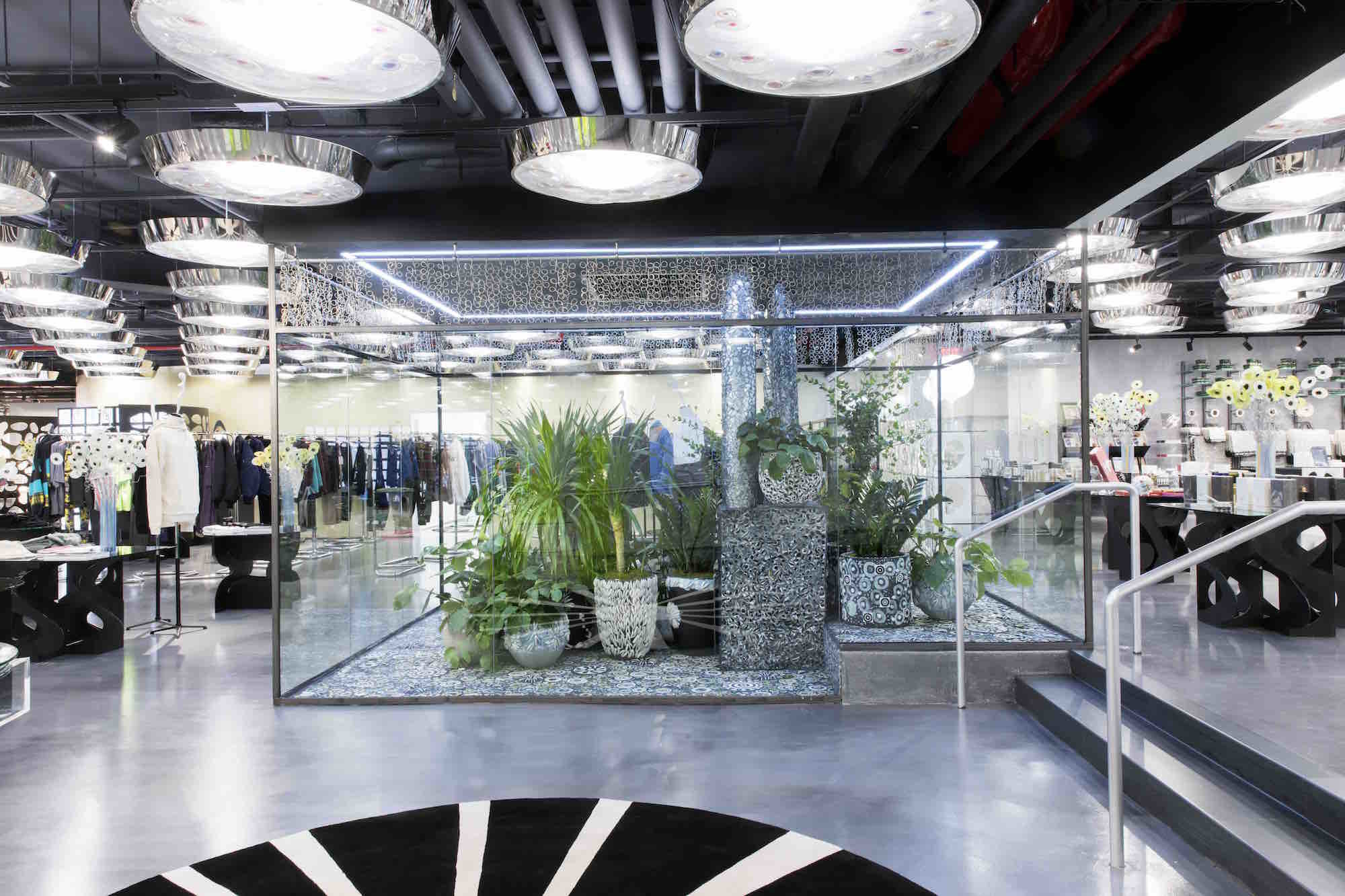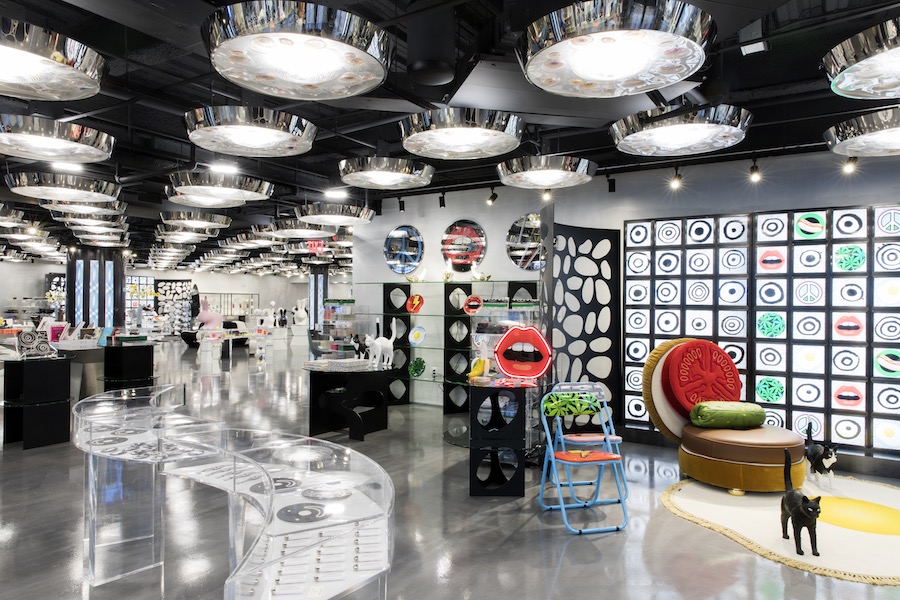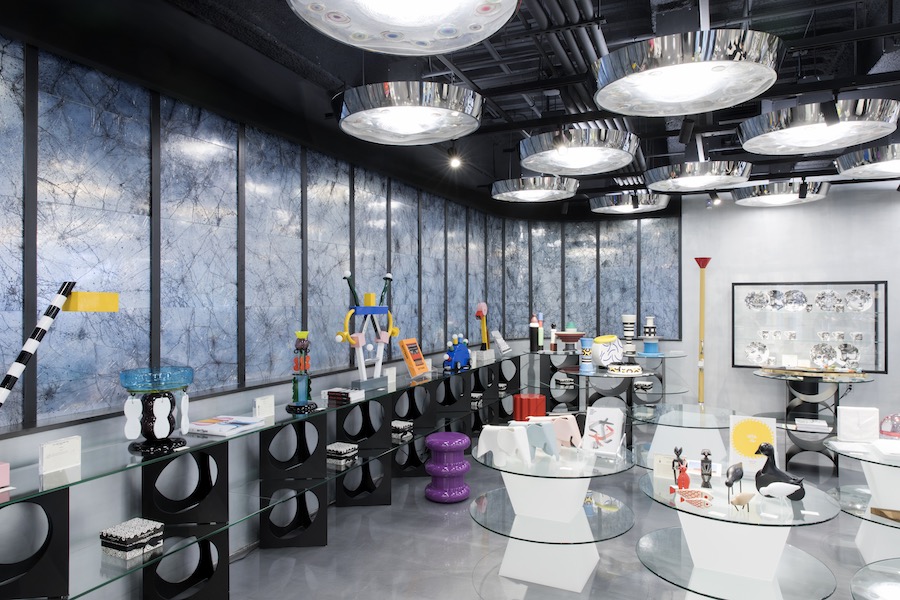The editors at Surface were saddened to learn that 10 Corso Como, the beloved retailer that Carla Sozzani founded in Milan three decades ago, would not reopen its New York location after closing due to the coronavirus pandemic. Below, revisit our original story about its 2018 opening.
It was nearly 30 years ago when 10 Corso Como opened at its eponymous Milan address and, according to its founder Carla Sozzani, birthed the very notion of a concept shop. Maybe that’s why, on the eve of celebrating its North American debut at New York City’s South Street Seaport district, she and her partner, the artist Kris Ruhs, weren’t preoccupied with the goods for sale. Sozzani, now 71 and sporting fine platinum locks, spent the afternoon holding court in the spacious retail floor, fussing over the best way to plate skewers of tomato and mozzarella, while a joyful and filthy Ruhs tended to a tank of spiral-eyed wire sea creatures, his final installation to complement the shop’s café.
Although Sozzani was famously reluctant to bring her philosophy of slow shopping—an approach defined by curious ambling among fashion, beauty, book, and design displays, with breaks at the in-store café and art gallery—to New York, she’s finally found synchronicity with a quiet corner of Manhattan infamous for its own unhurried pace. In the five years since the possibility of a New York store was first floated, Sozzani’s aesthetic has flourished across Asia, as 10 Corso Como locations opened in Seoul, Beijing, and Shanghai. In China, her in-house product line—branded olive oil, T-shirts, umbrellas, Birkenstock sandals, and Globetrotter luggage all sporting Ruhs’s bold lines—is so popular, customers are forbidden to take pictures for fear that the products be counterfeited. After nearly three decades, 10 Corso Como needs neither Instagram nor barricaded lines of teenagers in pursuit of here-today, gone-an-hour-later sneakers to survive. (To prove the point, a display of hand-painted Nikes by the artist Joshua Vides are not for sale.)
“My idea was never to be obsessed with what is in, and what is out. I like timeless,” she says. Her philosophy explains why the designer collaborations she releases are not always at the pace of industry trends. She’d rather contemplate drawings Ruhs offers her, and wait until the mood strikes to match them with the right product.
Beyond the merchandise, Ruhs and his Milan studios are responsible for every scribbled and drizzled café table, every hand-painted lighting fixture, and every blown-glass curtain and flower; much of the finishing touches done in his makeshift upstairs studio—an industrial wasteland of paint rollers, shattered mirrors, and deliveries of Aperol for opening night. It’s within the black-and-white landscape Ruhs created that Sozzani’s curation glimmers, with Prada and Alaia pop-up shops, a wall of perky Memphis Group lamps, and a corner light installation by the artist Michael Anastassiades for FlOS that wouldn’t be out of place at Museo del Novocento. Beyond it lies the entrance to the the shop gallery’s first exhibition, “Helmut Newton: Private Property.” “Right now I have an exhibition at the Helmut Newton Foundation of my collection, so it’s a swap,” Sozzani says.
Across the floor is 10 Corso Como Café, a day-to-night dining room offering seafood and aperitivo fare, helmed by a veteran of Sant Ambroeus. The café has become a staple of concept shops today because of Sozzani. Colette had its Water Bar, Dover Street Market has its partnership with Paris’s Rose Bakery, and that mimicry is a reminder that they followed her trends, and not the other way around.
How is it that she’s succeeded in striking a balance between lingering customers and paying customers, between selling disposable lighters and a rack of exclusive designs from Maison Margiela? What’s her secret? “Twenty-eight years,” she says of her time in the business. “You just have to keep it up and believe in what you’re doing. Keep it slow. For me it’s a passion. To do an exhibition, a book, it’s my life.”
So for those in need of a new lighter, or a $275 Alaia T-shirt, they will be here when the store opens to the public tomorrow morning. But take your time—there’s no need to rush.
